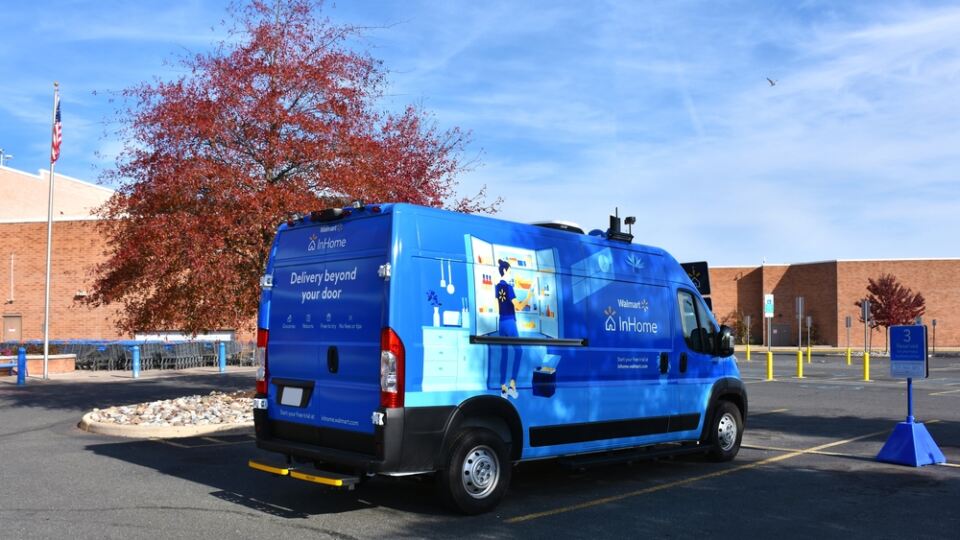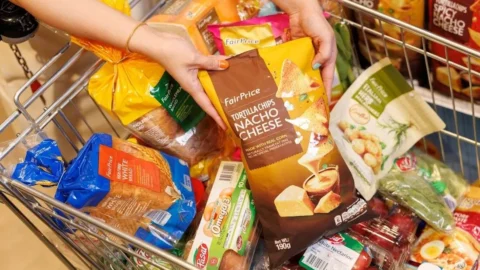Consumers’ continued reliance on omnichannel fulfillment has created new opportunities for industry giants like Walmart to differentiate and gain market share. The retailer reported 5.6% comparable sales growth and growing market share in grocery during Q4 2021, and much of this success can be attributed to its robust last mile and fulfillment strategy. Walmart will continue building on this momentum by increasing capacity by 35% in the coming year.
“We know that getting people their items as quickly as possible is a critical factor in customer satisfaction and loyalty, so there is heightened focus on how we can ensure customers are getting their items,” said Camille Dunn, Director of Corporate Communications, Last Mile at Walmart in an interview with Retail TouchPoints. “We continue to focus our last mile efforts on getting our customers their items how and where they want with speed. Whether its next-day, same-day or Express delivery, the customer expects their orders to arrive quickly, and we’re continuously working on redefining delivery timelines expressed in minutes rather than days.”
Some of the retailer’s plans include redesigning back rooms to accommodate pickup, delivery and ship- from-store orders; adjusting staging operations for orders to drop in three-hour increments to maximize space; and sending overflow delivery orders to the crowdsourced Spark Driver network.
“Walmart has used stores to fulfill pickup and delivery orders for years,” said Dunn. “It’s because of the pickup and delivery infrastructure we’ve built over the last ten years that we were able to quickly adapt to meet customer demand during the pandemic. To give a sense for the increase in delivery demand, we had a six-fold increase in delivery in the fourth quarter of last year versus pre-pandemic levels, and we have had to double down on speed and fulfillment without sacrificing cost or sustainability.”
Well-Trained Associates Power Last Mile Excellence
The personal shopper, a role that didn’t exist a decade ago, is now one of the fastest-growing positions at Walmart stores, according to Dunn. Associates are what keep a robust store-based fulfillment operation running, and keeping their skills sharp is a key ingredient in Walmart’s omnichannel success.
“Whenever we roll out new processes, we provide training for our associates to ensure they are comfortable with the new systems, policies and procedures,” said Dunn. “Whether it is training associates on more efficient ways to shop for an order or educating them on how to manage an automated system that picks and packs the order, we’re proud of the opportunity to upskill our associates with regards to last mile work. “
The focus on employees stretches beyond basic tasks. Walmart prepares its employees for the future through its Live Better U and Supply Chain Academies, which help them learn new skills and provide additional paths to advancement within the organization.
The Live Better U program helps associates earn their high school diploma or college degree, with books and tuition completely paid for by Walmart. The program also supports degrees in business, technology, supply chain management and other fields. More than 52,000 associates have participated and 8,000 of this group have earned degrees. And Walmart’s data indicates that these programs make a tangible impact: Live Better U participants are promoted at twice the rate of other associates, according to Dunn.
Technology and Efficiency Support a Sustainable Future
To successfully expand and optimize its last mile operations, Walmart is investing heavily in automation and sustainability. One major aspect is the Market Fulfillment Centers, 30,000 square-foot automated fulfillment spaces that can be located inside or connected to existing stores. These spaces can hold their own inventory, including refrigerated items, to assist with real-time availability of products for pickup and delivery.
The retail giant also will continue scaling up Walmart GoLocal, which provides delivery services to small and mid-sized grocers. “As more clients use Walmart GoLocal,” said Dunn, “we’re able to better densify the last mile, providing superior customer experiences for both Walmart customers and Walmart GoLocal clients.”.
Sustainability is another major pillar of Walmart’s last mile strategy. By 2040, the retailer is aiming to operate a zero-emissions fleet. To reach this goal, the retailer is aiming to make its internal fleet of delivery vans 100% electric. Walmart will add 1,100 Ford E-Transits in 2022 and it has reserved 5,000 BrightDrop EVs, slated to begin service in 2023.
Achieving true sustainability is an ongoing process that will encompass more than electric vehicles. Walmart is assessing multiple angles to ensure it is reducing carbon footprint wherever possible.
“Sustainability is an important component of our business model and we’ve approached last mile delivery through a sustainable lens,” said Dunn. “For example, we’re able to decrease the total number of miles a package travels when orders are filled through our stores compared to being routed to a fulfillment center. We’ve also cut back on the number of boxes we use and replaced them with recyclable mailers.”













